Search
Search Results
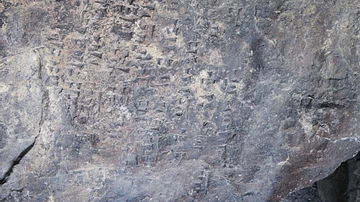
Image
Urartian Cuneiform Inscription from Lchashen, Armenia
This is a cuneiform inscription from Lchashen, Armenia, which is located close to Lake Sevan in the Gegharkunik Province. This cuneiform dates from the time of the Urartian King Argishti I (r. 786-764 BCE). Herein, the capture of the city...

Definition
Mesopotamian Science and Technology
Mesopotamian science and technology developed during the Uruk Period (4100-2900 BCE) and Early Dynastic Period (2900-1750 BCE) of the Sumerian culture of southern Mesopotamia. The foundation of future Mesopotamian advances in scientific/technological...
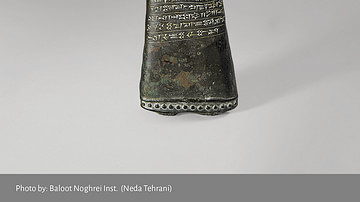
Image
Bronze Figurine with Babylonian Cuneiform Inscription from Western Iran
Bronze figurine with Babylonian cuneiform inscription found in Luristan Province, c. 1000-900 BCE (Iron Age II), National Museum of Iran, Tehran, inv. no. 1408. Photo by Neda Tehrani (Baloot Noghrei) The cultural influence of Mesopotamia...
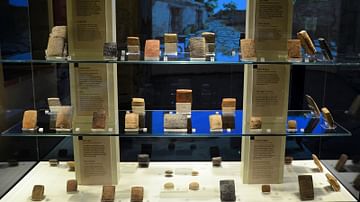
Image
Cuneiform Clay Tablets from Kanesh
Clay tablets with cuneiform letters found at Kültepe in central Turkey (ancient Kanesh), 1900 BCE – 1700 BCE. They were all written by merchants who, from around 1900 BCE, had come to Kanesh from the city of Ashur in Assyria and established...
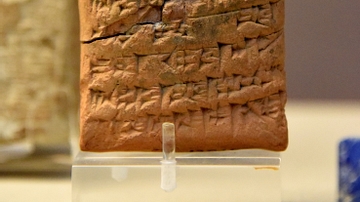
Image
Cuneiform Letter Ordering Men to Go to Court
The cuneiform text of this clay tablet orders men to go to Babylon for a court hearing. This letter from Hammurabi is addressed to an official named Sin-iddinam. Old Babylonian Period, reign of Hammurabi, 1792-1750 BCE. From Larsa, Southern...
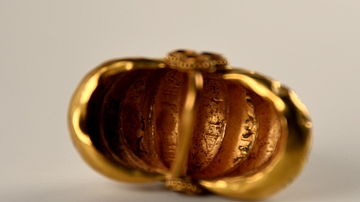
Image
Interior Cuneiform of Gold Earring, Ur III
The interior hollow surface of the earring. Note how the carved cuneiform signs appear on this side and how the goldsmith joined the “lunar-shaped” segments of the earring. One of a pair of gold earrings, 24 carats. Gift from Shulgi to a...
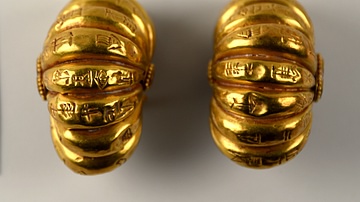
Image
Cuneiform on Gold Earrings from Ur III
Both earrings are placed in a mirror-image position, with the lower surfaces facing each other. Each earring is composed of nine lunar-shaped segments forming a flattened half- ball. The cuneiform signs run vertically from above downward...
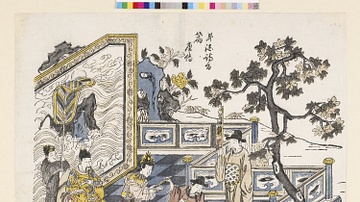
Image
Li Po Writing Poetry
17th-century, woodcut recreation of Li Po writing 100 verses while drinking a quart of wine seated on the veranda with a group of men.

Image
King David Writing Psalms
A 17th century CE artist's rendition of David inscribing one of his famous psalms. By Giovanni Francesco Barbieri (Guercino).

Video
Cuneiform Hand-Me-Downs - how Sumerian outlived its speakers
My favorite example of how odd Cuneiform became as it was passed from civilization to civilization. Thanks, rampant Sumerianization! Cuneiform languages took Sumerian very seriously, even after it was long dead. That’s how Akkadian and...